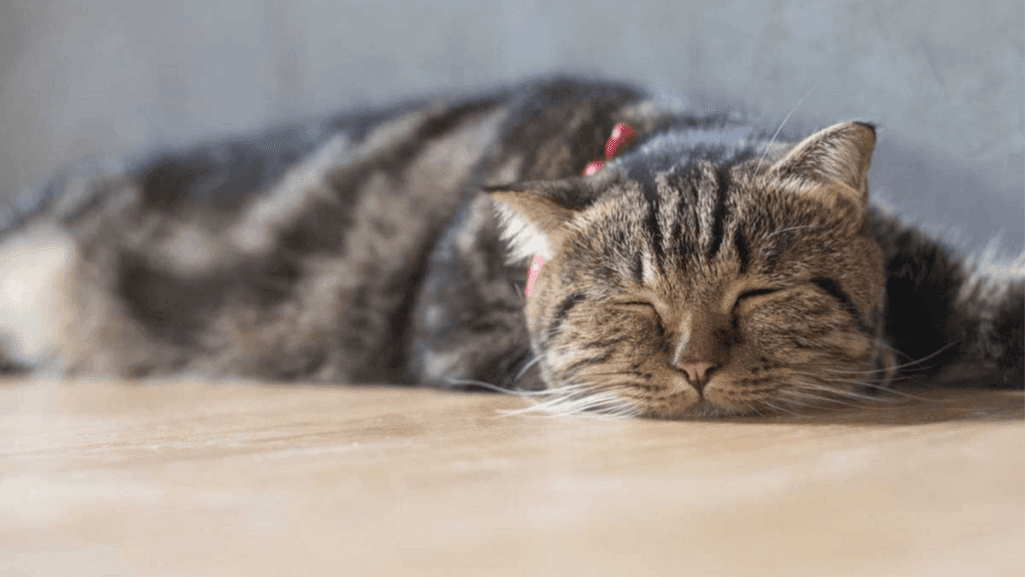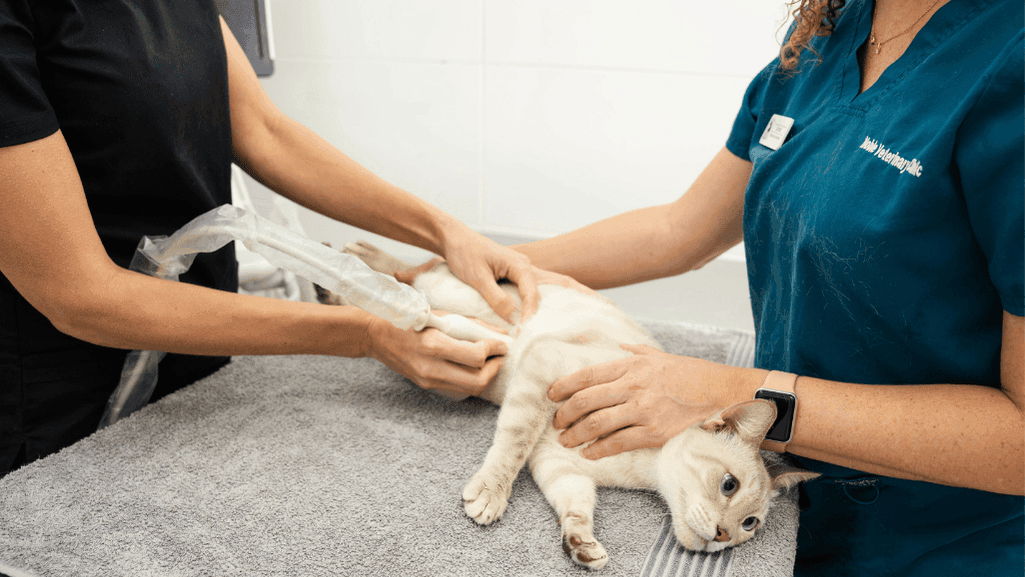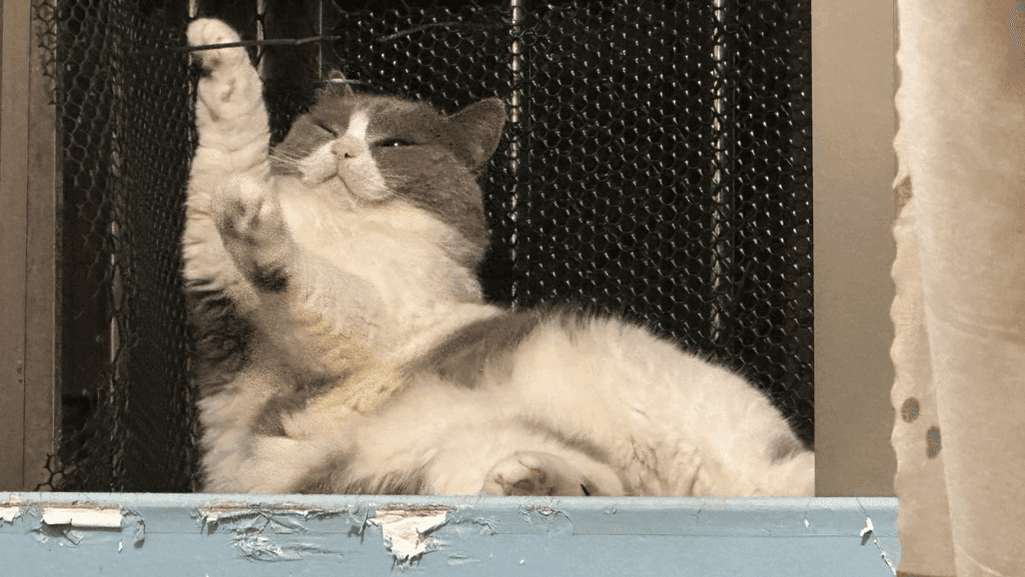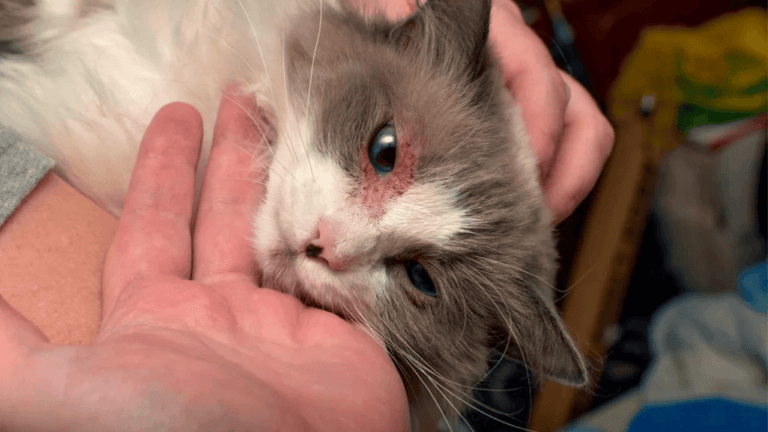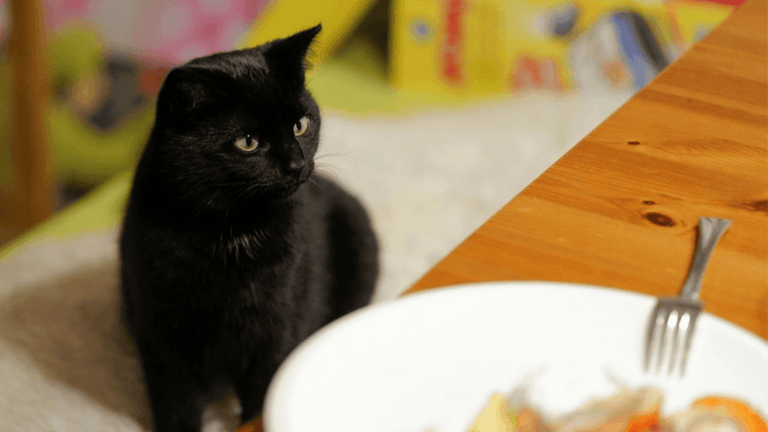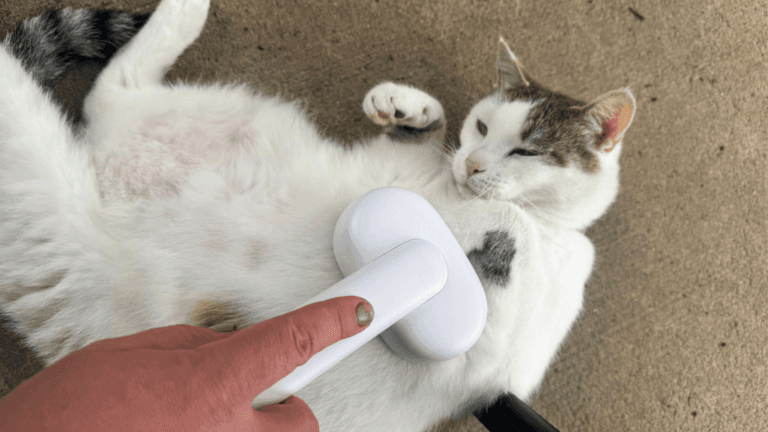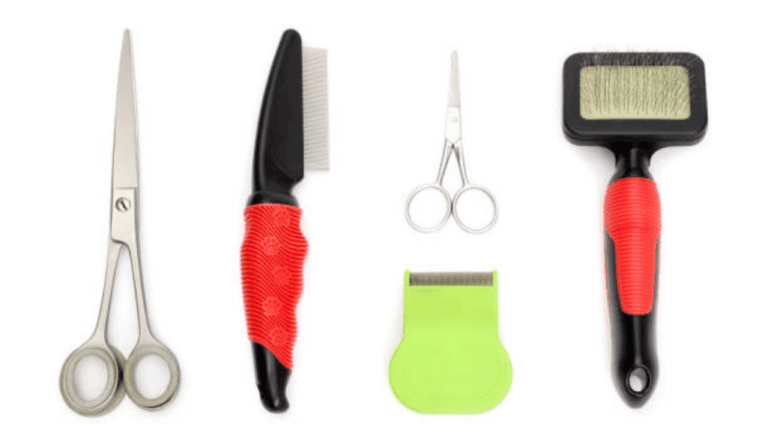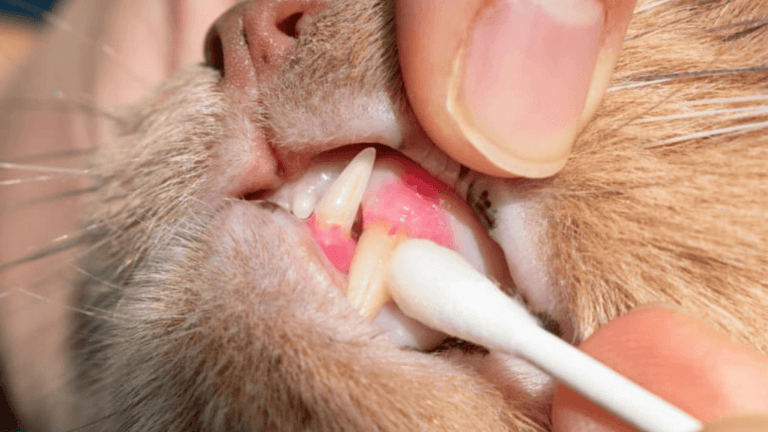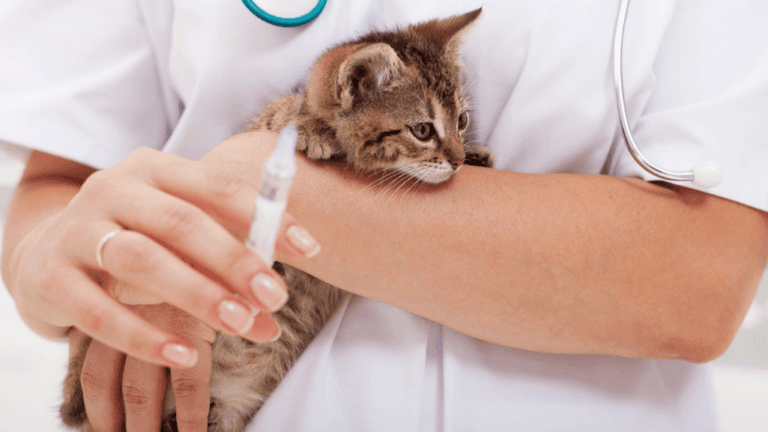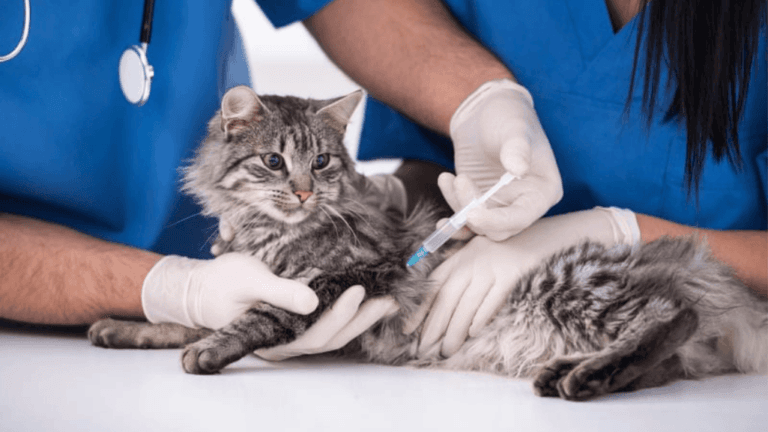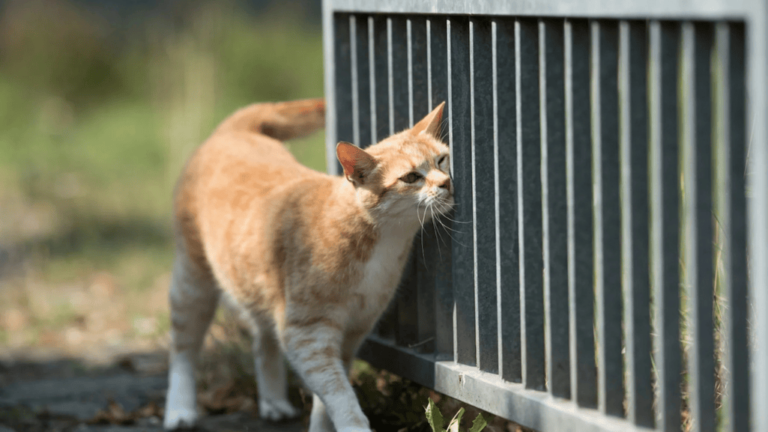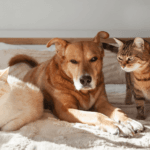As a cat parent, watching your pet’s health is key, mainly their digestive system. Vomiting and diarrhea can show many issues, from simple stomach upset to serious problems needing vet help.
Look for changes in your cat’s energy, appetite, water intake, and litter box use. These signs might mean your cat is feeling sick or has digestive issues. Not noticing these signs, like in kittens or older cats, can cause bigger health problems.
Vets say diarrhea is always a worry in cats, more so for weak ones. Diarrhea that lasts less than 14 days is acute, while longer is chronic. Knowing why your cat might vomit or have diarrhea, like infections or diseases, helps get them the right care fast.
Key Takeaways
- Watch your cat’s energy, appetite, and litter box habits for signs of digestive issues.
- Vomiting and diarrhea are common symptoms of various feline gastrointestinal problems.
- Diarrhea is never normal in cats and can be dangerous for kittens, senior cats, pregnant cats, and those with chronic diseases.
- Acute diarrhea lasts less than 14 days, while chronic cases persist for two to three weeks or longer.
- Seek veterinary care if your cat experiences recurring diarrhea, vomiting, weakness, blood in stool, or signs of dehydration.
While some cat breeds might seem grumpier, remember each cat is unique. By keeping up with your cat’s digestive health, you can make sure they live a happy, healthy life.
Understanding Feline Digestive Issues
Feline gastrointestinal disorders are a big worry for cat owners. Symptoms like vomiting and diarrhea upset both cats and their owners. Knowing the causes and signs is key to keeping your cat healthy.
Common Causes of Vomiting and Diarrhea in Cats
Many things can make cats vomit or have diarrhea. These include:
- Infections (parasitic, bacterial, viral)
- Inflammatory conditions (food allergies, inflammatory bowel disease)
- Metabolic or endocrine disorders (diabetes, hyperthyroidism)
- Cancer (lymphoma)
- Obstructions (hairballs, foreign bodies)
- Poisoning (toxic foods, medications)
Changes in a cat’s diet can also cause problems. For example, eating something bad can lead to food poisoning. A study showed 29% of cats with long-term digestive issues had food sensitivity.
Recognizing Signs of Gastrointestinal Distress
Cat owners should watch for signs of digestive trouble. These signs include:
- Changes in stool consistency, color, and frequency
- Lethargy and weakness
- Loss of appetite
- Dehydration
- Weight loss
- Abdominal pain or discomfort
In severe or prolonged cases, identifying and managing the underlying disease is necessary.
By knowing the common causes and signs, cat owners can help their pets. They can also get vet help quickly when needed.
Acute vs Chronic Vomiting and Diarrhea
It’s key to know the difference between acute and chronic vomiting and diarrhea in cats. Acute issues are sudden and short, while chronic ones last longer. Knowing this helps cat owners know when to get vet help.
Defining Acute and Chronic Digestive Issues
Acute cat diarrhea usually lasts under 14 days and might get better with home care. Chronic vomiting, though, goes on for weeks and needs vet tests and care. Causes include infections, feline inflammatory bowel disease, and more.
- Resistant infections
- Inflammatory diseases like feline inflammatory bowel disease
- Poorly managed metabolic disorders
- Congenital defects
- Cancer
Young kittens and older cats often get sick with vomiting or diarrhea. Even a few episodes can be a sign of trouble. Gastroenteritis can cause these symptoms in any cat.
When to Seek Veterinary Care
Some vomiting and diarrhea in cats might get better by itself. But, some signs mean you should see a vet fast:
- Blood or mucus in the diarrhea
- Vomiting with other signs like tiredness or dehydration
- Loss of appetite
- Abdominal pain or swelling
- Throwing up a lot, many times a day, or for over 24 hours
Get vet help right away if your cat is very tired, sad, or in pain.
For chronic vomiting or diarrhea, there might be a bigger health issue like pancreatitis. Tests like blood work and imaging can find the cause and help treat it.
Diagnosing Feline Vomiting and Diarrhea
Accurate diagnosis is key when dealing with feline digestive problems. If your cat keeps vomiting or has diarrhea, it’s time to see a vet. They will do a full check-up and might suggest tests to find out what’s wrong.
Diagnostic Tests for Gastrointestinal Problems
Your vet might run several tests to figure out your cat’s stomach issues. Bring a fresh stool sample for analysis. Tests like fecal exams and blood work can spot infections or inflammation.
Advanced imaging like ultrasound or endoscopy might be needed too. These can find things like foreign bodies or cancer. A study found that 53% of cats with inflammatory bowel disease (IBD) had colitis, showing the need for detailed testing.
Identifying Underlying Health Conditions
Chronic vomiting and diarrhea often hide underlying health issues, more so in older cats. Common causes include:
- Chronic kidney failure
- Chronic pancreatitis
- Cholangitis
- Hyperthyroidism
A study on 55 cats with chronic GI issues found that 29% had food sensitivity. Amazingly, 20% got better just by changing their diet. This shows how important diet is in treating GI problems.
“Vomiting and diarrhea are reported as the most common symptoms seen in cats.” – Veterinary Expert
Working with your vet and using the right tests can find the cause of your cat’s problems. Early diagnosis helps your cat feel better and stay healthy.
Treatment Options for Feline Digestive Disorders
Treating feline vomiting and diarrhea depends on the cause and how severe it is. Never give cats human meds like Pepto Bismol® because they can be harmful. In serious cases of feline gastroenteritis, cats might need to stay in the hospital. There, they get fluids, antibiotics, and meds to stop nausea.
For milder cases, home remedies can work if symptoms get better in 48 hours. Adding canned pumpkin or fiber supplements can help with digestion. Feline-specific probiotics also support good gut bacteria. For cats with sensitive stomachs, a special diet can help.
Chronic vomiting or diarrhea might mean your cat has inflammatory bowel disease (IBD). This usually affects older cats and is linked to immune system issues. Signs include weight loss, bloody stools, feeling tired, and not wanting to eat.
To find out if your cat has IBD, your vet might do blood tests, ultrasounds, and possibly take a biopsy. Treating IBD includes changing the diet, using meds, and sometimes surgery. Foods that are less likely to cause allergies are tested. Meds like metronidazole and corticosteroids help with inflammation. Prebiotics and probiotics are newer options for treating diarrhea and improving digestion.
“The prognosis for cats with IBD is generally positive with proper management, but symptoms may recur, requiring ongoing monitoring and adjustment of treatment.” – Dr. Jane Smith, DVM
If home treatments don’t work, see your vet right away. They can figure out the best treatment for your cat’s digestive problems. This will help your cat feel better and stay healthy.
Preventing Vomiting and Diarrhea in Cats
As a cat parent, it’s key to keep your cat’s digestive system healthy. This is vital for their overall well-being. By preventing digestive upsets, you can avoid your cat’s discomfort and safety risks.
Dietary Considerations for Optimal Digestive Health
A balanced diet is the base of good digestion for cats. Avoid sudden diet changes or feeding human foods. These can upset your cat’s stomach. When changing food, do it slowly over days to help their gut adjust.
Make sure your cat always has fresh, clean water. Cats need 180 to 300 ml of water daily, based on their size and activity. If your cat has hairballs, try a special diet or supplements to prevent digestive problems.
Probiotics, like Fortiflora, can support healthy digestion. Give them once a day for five days.
Importance of Regular Veterinary Check-Ups
Annual vet visits and stool tests are key to catch health issues early. Kittens need vaccinations against feline parvovirus starting at 6-8 weeks. They need boosters every 3 weeks until 16-18 weeks.
Adult cats also need boosters to keep their immunity strong. Deworming kittens regularly is important due to roundworms.
“An ounce of prevention is worth a pound of cure.” – Benjamin Franklin
Maintaining a Healthy Home Environment
Keeping your cat’s space clean is vital to prevent digestive problems. Clean litter boxes, food and water bowls, and bedding often. This helps avoid infections.
Be careful with indoor plants. Some can be toxic to cats and cause vomiting and diarrhea.
If your cat vomits or has diarrhea, give them a quiet, comfy place to rest. Follow your vet’s advice on medication, diet, and follow-up visits. Offer small amounts of water often to prevent dehydration. Gradually return to regular diet over two to three days.
Focus on prevention with proper nutrition, regular vet care, and a clean home. This keeps your cat’s digestive system healthy and reduces vomiting and diarrhea.
Conclusion
Feline vomiting and diarrhea can come from many causes. These range from simple stomach issues to serious health problems. As a cat owner, it’s important to watch for signs of feline gastrointestinal problems.
Common reasons include eating things they shouldn’t, hairballs, allergies, infections, toxins, blockages, and chronic diseases like inflammatory bowel disease (IBD).
Studies show that chronic small bowel disease (CSBD) is common in cats with ongoing vomiting. It’s often missed by owners and vets. Abdominal ultrasonography can spot CSBD in 99% of cases.
Research also points to new viruses like fechavirus and feline bocaviruses as possible causes of vomiting and diarrhea in cats.
While some vomiting is normal, frequent or severe vomiting needs vet care. Look for signs like weight loss, less appetite, or tiredness. Quick vet visits, following treatment, and a clean environment can help manage digestive issues.
Regular vet visits and a balanced diet are key to preventing vomiting and diarrhea. This keeps your cat healthy and happy.



